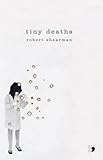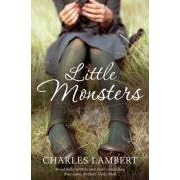 I've just finished reading the anthology Everything I Have is Blue (helpfully subtitled: Short Fiction by Working-class Men about More-or-less Gay Life). It's edited by Wendell Ricketts, who also contributes a gripping short story of his own and a final, finely written and thought-provoking essay. With the exception of Wendell himself and one of my favourite writers, Keith Banner, most of these writers are new to me, although I have come across CAConrad on various networking sites and enjoyed what I've seen of his work. This doesn't mean they haven't published; most of them have rich and varied writing careers, described at the back of the book. It's more likely to mean that the kind of writing they're involved in is marginalised. Marginalised initially as gay writing and, subsequently, in class terms as writing that appears to fail to tell us what we want to know: that we're young, beautiful, rich and infinitely desirable. I've been thinking a lot recently about the non-consolatory function that gay writing might perform, mostly in the context of my virtual tour for my own short stories, and so it's exciting to see how this immensely varied group of writers work with their material to talk about lives that are demonstrably less than perfect, by which I mean recognisable as human.
I've just finished reading the anthology Everything I Have is Blue (helpfully subtitled: Short Fiction by Working-class Men about More-or-less Gay Life). It's edited by Wendell Ricketts, who also contributes a gripping short story of his own and a final, finely written and thought-provoking essay. With the exception of Wendell himself and one of my favourite writers, Keith Banner, most of these writers are new to me, although I have come across CAConrad on various networking sites and enjoyed what I've seen of his work. This doesn't mean they haven't published; most of them have rich and varied writing careers, described at the back of the book. It's more likely to mean that the kind of writing they're involved in is marginalised. Marginalised initially as gay writing and, subsequently, in class terms as writing that appears to fail to tell us what we want to know: that we're young, beautiful, rich and infinitely desirable. I've been thinking a lot recently about the non-consolatory function that gay writing might perform, mostly in the context of my virtual tour for my own short stories, and so it's exciting to see how this immensely varied group of writers work with their material to talk about lives that are demonstrably less than perfect, by which I mean recognisable as human.
My favourite pieces in the collection are probably those that work at the interface of gay-straight lives, such as the opening story by C. Bard Cole or Marcel Devons' tale about Scotty taking his boyfriend home to meet his parents. More than any other, I loved My Special Friend by Christopher Lord, and not only because the reading of it coincided with a dispute about Christmas trees chez moi. I found the final story in the collection, a long piece by James Barr, interesting as a story and even more interesting in a socio-historical sense; for me, at least, it illuminated the background to Brokeback Mountain, which must be the most famous story ever written about working-class gay men, while offering a sort of alternative to that story's historical hopelessness. It's the nearest story in the book to what I've termed consolatory, but even here the hero's forced, through one of those timely accidents fiction depends on, to think about, and come to terms with, his sexual and emotional needs.
What's refreshing about the book as a whole, though, is that it offers not only scenes of deprivation and desperation, but also possibilities of happiness that aren't shallow, self-defeating or unattainable, and it does this with warmth, intelligence and skill. I'm least happy with the stories in which a sort of poetic take on lives of hardship and squalor seems to glamourise rather than portray those lives, a stance that comes across, to me anyway, as inverted consolation. I'd also say that the sub-culture depicted in, for example, Skins, powerfully evoked though it is, isn't working-class at all, but sub-proletariat and as ghetto-ized in its way as the flashier world of 'beach reading'. But what the book does, to its enormous credit, is foreground these issues, and it does so by bringing together some fine and exciting writing. You can click on the link above to order the book, read more work by other great writers and contribute to Wendell's ongoing project. You won't regret it.














 really been touched on before. If you want to know what turned me on as a teenager, and what turns me on now as a reader, this is the place to go. Plus you'll get the chance to explore Jim's many other interests, which include, in his own words:
really been touched on before. If you want to know what turned me on as a teenager, and what turns me on now as a reader, this is the place to go. Plus you'll get the chance to explore Jim's many other interests, which include, in his own words: